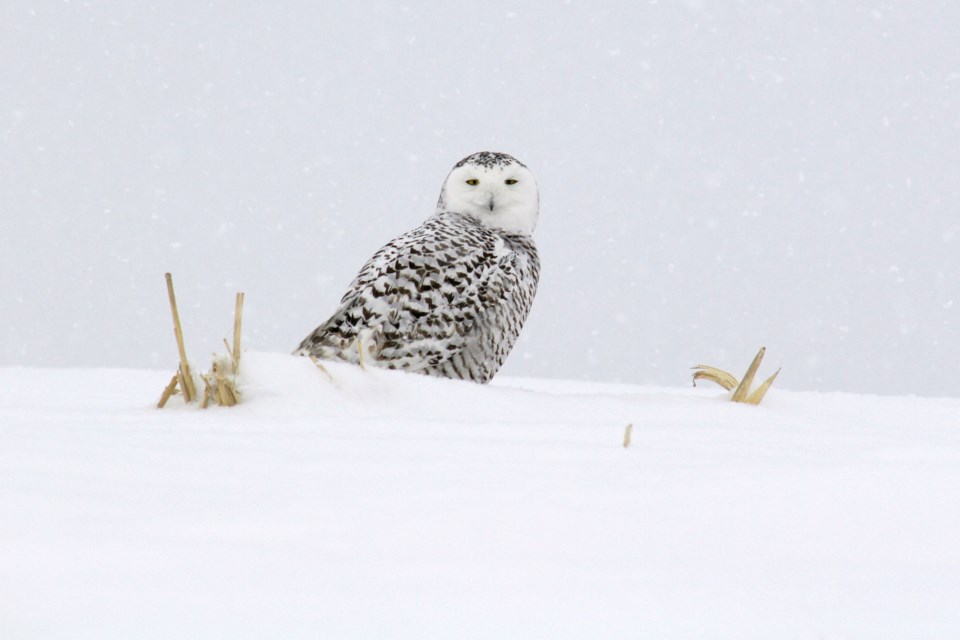Two snowy owls found dead at the Leslie Street Spit in late December died of avian influenza A, also known as H5N1, the Toronto Region Conservation Authority (TRCA) has confirmed.
"Test results indicate the owls were infected with Highly Pathogenic Avian Influenza, which has been present across North America for the last few years," TRCA senior manager Karen McDonald told TorontoToday.
“This is concerning because it is a contagious virus that causes high mortality in infected animals," McDonald wrote in a statement Friday.
While the H5N1 strain primarily infects birds and other animals, in November 2024 a teenager in British Columbia contracted the virus — the first human case in Canada.
The TRCA operates Tommy Thompson Park on the spit, a peninsula that extends about four kilometres into Lake Ontario from the foot of Leslie Street in the east end. It has long been a favourite spot for birdwatchers.
When the dead owls were initially discovered, the wildlife photographer who found them believed they had been killed by rat poison. A petition calling for a municipal ban on rat poison created by the photographer received over 2,800 signatures.
The Canadian Food Inspection Agency has confirmed avian flu in four birds on Toronto’s shoreline in recent years, including a Canada goose and a mallard last year.
According to UN health officials, H5N1 has caused the death of 300 million birds across the globe.
Bird-to-human transmission of avian flu is rare but not unknown. Half of the 900 people who are known to have contracted the disease worldwide in the last 20 years have died. The disease is spreading among livestock and farm workers in the United States, prompting California to declare a state of emergency in mid-December.
McDonald said the TRCA is now monitoring the park for sick or dead birds. It is also asking the public to report sightings to [email protected] or the Canadian Wildlife Health Cooperative.
Live birds accessible from land that appear sick should be reported to the Toronto Wildlife Centre at (416) 631-0662.
Reports should include:
- species (if possible)
- exact location (approximate GPS coordinates and/or a map)
- number of individuals
- date and time found
- photos
"The public is reminded to avoid contact with sick or dead birds or other wildlife to avoid potential exposure to avian flu," McDonald wrote.
"Do not touch, feed or handle them."
